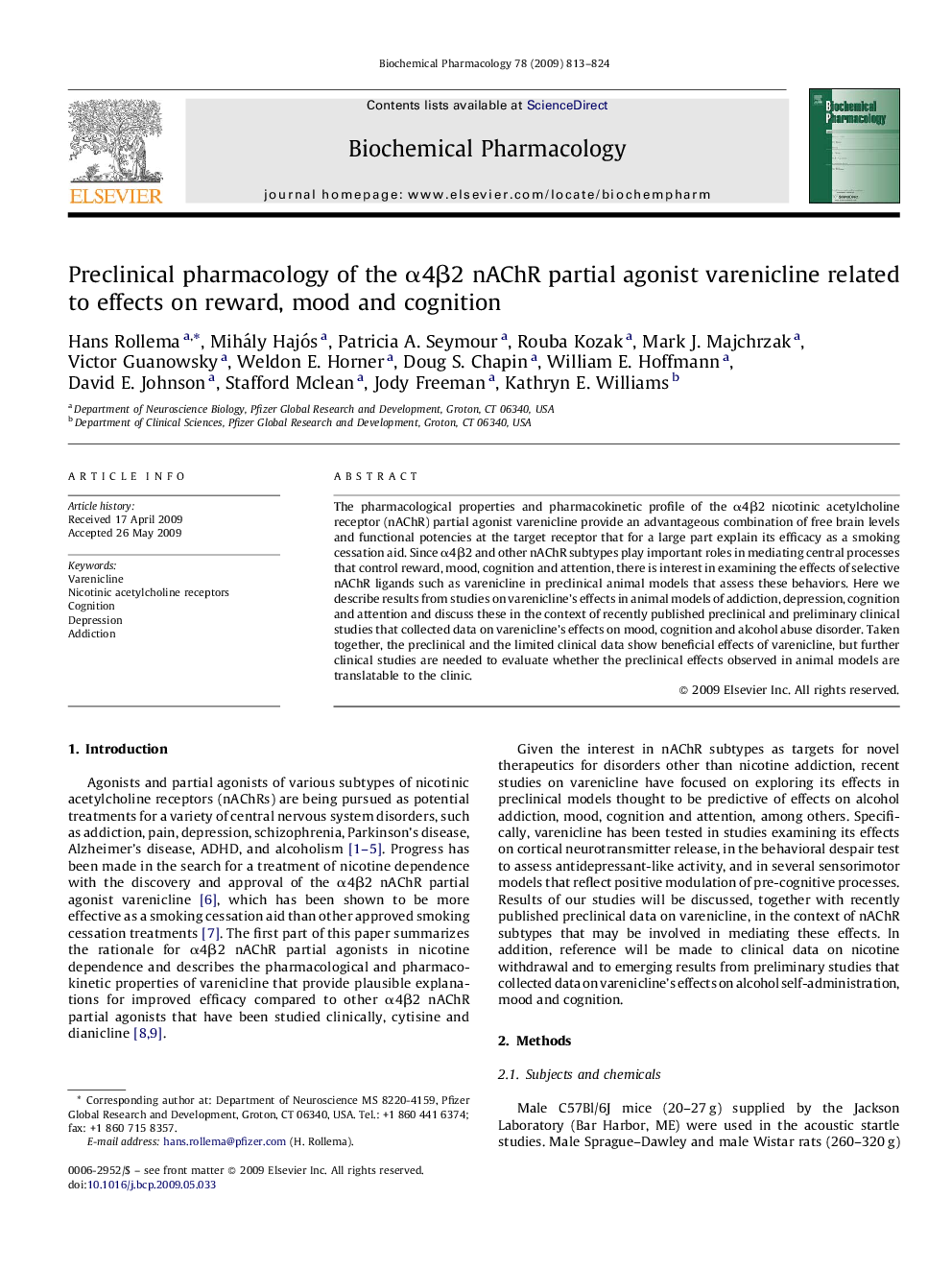| Article ID | Journal | Published Year | Pages | File Type |
|---|---|---|---|---|
| 2513863 | Biochemical Pharmacology | 2009 | 12 Pages |
The pharmacological properties and pharmacokinetic profile of the α4β2 nicotinic acetylcholine receptor (nAChR) partial agonist varenicline provide an advantageous combination of free brain levels and functional potencies at the target receptor that for a large part explain its efficacy as a smoking cessation aid. Since α4β2 and other nAChR subtypes play important roles in mediating central processes that control reward, mood, cognition and attention, there is interest in examining the effects of selective nAChR ligands such as varenicline in preclinical animal models that assess these behaviors. Here we describe results from studies on varenicline's effects in animal models of addiction, depression, cognition and attention and discuss these in the context of recently published preclinical and preliminary clinical studies that collected data on varenicline's effects on mood, cognition and alcohol abuse disorder. Taken together, the preclinical and the limited clinical data show beneficial effects of varenicline, but further clinical studies are needed to evaluate whether the preclinical effects observed in animal models are translatable to the clinic.
Graphical abstractEffects of the α4β2 nAChR partial agonist varenicline, an efficacious smoking cessation aid, in animal models of addiction, depression, cognition and attention.Figure optionsDownload full-size imageDownload as PowerPoint slide
